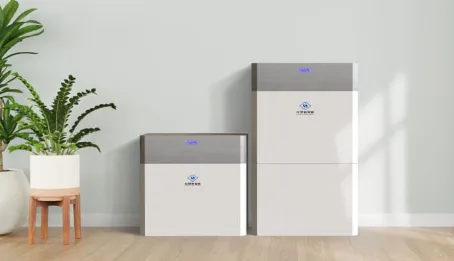In the contemporary landscape of the home energy storage industry, the question of whether lithium - ion batteries are essential has become a topic of intense debate. As households increasingly seek to manage their energy consumption more efficiently, reduce reliance on the grid, and integrate renewable energy sources, the role of energy storage systems has become pivotal.

The Appeal of Lithium - Ion Batteries in Home Energy Storage
High Energy Density
One of the most compelling reasons for the popularity of lithium - ion batteries in the home energy storage domain is their high energy density. These batteries can store a substantial amount of energy within a relatively compact and lightweight form factor. For homeowners, this means that a lithium - ion battery - based energy storage system can be installed in a limited space, such as a garage corner or a small utility room, without taking up excessive floor area. In a typical suburban home, a lithium - ion battery pack with a capacity of 10 - 15 kWh can provide sufficient energy storage for a day's worth of moderate electricity usage, powering essential appliances like refrigerators, lights, and small electronics during peak - rate hours or power outages.
Long Cycle Life
Lithium - ion batteries also offer a relatively long cycle life compared to some other battery chemistries. They can endure numerous charge - discharge cycles before experiencing a significant decline in capacity. In the context of home energy storage, where the battery is charged during off - peak hours (e.g., at night when electricity tariffs are lower) and discharged during peak - demand periods (such as evenings when household electricity consumption spikes), a long cycle life is crucial. A well - designed lithium - ion battery can withstand thousands of charge - discharge cycles, ensuring that it remains a reliable energy storage solution for many years. This longevity reduces the need for frequent battery replacements, minimizing the overall cost of ownership for homeowners.
Fast Charging and Discharging Capabilities
Another advantage of lithium - ion batteries is their ability to charge and discharge rapidly. In a home setting, this means that when solar panels generate excess electricity during sunny days, the lithium - ion battery can quickly absorb and store this energy. Similarly, when the household's electricity demand suddenly increases, the battery can discharge its stored energy at a fast rate to meet the load requirements. For example, if a homeowner turns on multiple high - power appliances simultaneously, such as an electric oven, an air conditioner, and a washing machine, the lithium - ion battery can rapidly supply the necessary power, preventing voltage drops and ensuring stable operation of the electrical system.
Alternatives to Lithium - Ion Batteries in Home Energy Storage
Lead - Acid Batteries
Lead - acid batteries have been a traditional choice for home energy storage for many years. They are relatively inexpensive compared to lithium - ion batteries and have a well - established manufacturing and recycling infrastructure. However, lead - acid batteries have several drawbacks. They have a lower energy density, which means that for the same amount of energy storage, they are much larger and heavier than lithium - ion batteries. Additionally, lead - acid batteries have a shorter cycle life, typically requiring replacement more frequently. Their charging efficiency is also lower, resulting in more energy loss during the charging process.
Flow Batteries
Flow batteries are another alternative in the home energy storage market. These batteries have the advantage of being able to decouple power and energy capacity. The power output of a flow battery is determined by the size of the electrodes, while the energy storage capacity is determined by the volume of the electrolyte solution. This allows for more flexibility in system design. However, flow batteries are generally more complex and expensive to install and maintain compared to lithium - ion batteries. They also require more space due to the need for separate tanks to store the electrolyte.
Considerations for Homeowners
Cost
Cost is a significant factor for homeowners when deciding on an energy storage solution. Lithium - ion batteries, while offering many advantages, can be relatively expensive upfront. However, as technology advances and economies of scale come into play, the cost of lithium - ion batteries has been steadily decreasing. Homeowners need to consider not only the initial purchase cost but also the long - term cost of ownership, including battery replacements and maintenance. In some cases, the potential savings in electricity bills over time, combined with the benefits of grid independence and backup power, can offset the higher initial investment in lithium - ion batteries.
Safety
Safety is also a crucial consideration. Lithium - ion batteries, if not properly designed and maintained, can pose safety risks such as thermal runaway and fire hazards. However, modern lithium - ion battery technologies have incorporated numerous safety features to mitigate these risks. Homeowners should ensure that the lithium - ion battery system they choose meets strict safety standards and is installed by qualified professionals.
In conclusion, while lithium - ion batteries are not the only option for the home energy storage industry, they offer a compelling combination of high energy density, long cycle life, and fast charging and discharging capabilities. As technology continues to evolve and costs continue to decline, lithium - ion batteries are likely to remain a leading choice for homeowners looking to optimize their energy usage and achieve greater energy independence. However, the choice between lithium - ion batteries and other alternatives ultimately depends on individual homeowner needs, budget, and priorities.



